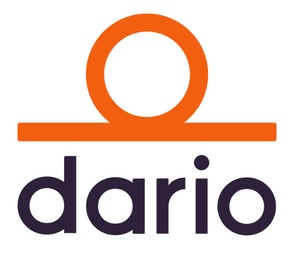It may be a little chilly out, but it feels like Springtime For Early Round Funding and Big Partnerships.
Anima, a London-based startup fresh out of Y Combinator, now has a $12 million Series A raise. It was led by Molten Ventures, with participation from existing investors Hummingbird Ventures, Amino Collective and Y Combinator. Its platform combines online consultation with productivity tools for integrated care enablement in one dashboard for primary care. Their founders position it as a single source for patient truth across care settings, avoiding missed diagnoses. As of today, Anima is deployed in over 200 NHS clinics in England caring for a combined 2 million patients and a monthly request volume of over 400,000 requests. They also claim to halve the time the time practices spend on coding, processing, and filing documents and resolve 85% of patient inquiries within a day. Shun Pang, co-founder and CEO of Anima, who trained as a doctor at Cambridge University, told TechCrunch. “The entire clinic collaborates in a real-time multiplayer dashboard, like Figma, and can ping cases to each other, and chat with a Slack-like UX.” he said. He also added that Anima’s processing system can “autonomously ingest any document, like handwritten, diagrams, imaging, and output a summary, with structured fields.” Anima has not entered the US market yet. Anima blog/release, Tech.EU
Hippocratic AI raised a jumbo $53 million Series A for what they term the first safety-focused Large Language Model (LLM) for healthcare. AI of course is the hottest funding area in healthcare. With two previous rounds raised in mid-2023, their total funding is $118 million (Crunchbase), creating a valuation estimated at $500 million. Investors were co-led by Premji Invest and General Catalyst with participation from SV Angel and Memorial Hermann Health System as well as existing investors Andreessen Horowitz (a16z) Bio + Health, Cincinnati Children’s, WellSpan Health, and Universal Health Services (UHS). Their product is a novel staffing marketplace where health systems, payors, and others can “hire” auto-pilot generative AI-powered agents to conduct low-risk, non-diagnostic, patient-facing services to help solve the massive healthcare staffing crisis. This is now being released for phase three safety testing with 5,000 licensed nurses, 500 licensed physicians, and the company’s health system partners. Release
San Francisco-based startup Assort Health now has a seed round of $3.5 million to advance its generative AI approach to healthcare call centers. Its goal is to eliminate front desk stress and call center/service holds. Their system in development uses AI and NLP (natural language processing) to understand a caller’s intent, then to integrates with the medical providers’ EHR, including Epic, to resolve patient inquiries without human intervention. Funding was led by Quiet Capital (!) joined by Four Acres, Tau Ventures, and a number of angel investors from tech companies. Release
Another generative AI company with a substantial Series C under its belt, Abridge, is partnering with super-hot NVIDIA. The partnership also comes with undisclosed funding from NVIDIA’s VC arm, NVentures, to add to last month’s $150 million raise. Abridge is developing conversational AI technology using LLM and speech recognition to ease the burden of taking notes during the doctor’s appointment, with fluency in 14 languages across 55 medical specialties. Abridge’s technology is designed to capture clinician-patient conversations and structure the scribing. NVIDIA’s partnership will give Abridge access to NVIDIA’s computing resources, foundation models, and expertise in efficiently deploying AI systems at scale. Release
Another episode in the continuing Walgreens Restructuring Saga has VillageMD selling 11 practices to Arches Medical Partners. The practices are located in the Providence metro area of Rhode Island and consist of three urgent cares and eight offices with a total of 50 physicians and 75,000 patients. It is unusual because it is the first time that VillageMD sold their practices instead of closing the offices, which they are doing with 85 to 90 offices. Transaction cost was not disclosed but closed on 2 March. Arches is based in Cambridge, Massachusetts. They acquired these practices but also deploy software from its wholly-owned technology subsidiary, New Era Medical Operations (NEMO), to enable IPAs to negotiate and manage global risk contracts. Arches release, Becker’s, Crain’s Chicago Business
Wondering why ransomwareistes, their affiliates, and hackers in general are attracted to healthcare? It’s the value of a medical record. Going rates on the ‘dark web’ are now topping $60, according to CNBC’s source, a cybersecurity researcher Jeremiah Fowler. By comparison, Social Security number are a bargain $15 and a credit card number but $3. It’s also easier to hack than ever due to affiliate relationships termed ransomware-as-a-service or RaaS. The ransomware is supplied, the affiliate hackers do the work, and they share in the rewards–most of the time (see ‘notchy’ being scammed by BlackCat/ALPHV on the Change Healthcare cyberattack TTA 5 Mar). But this doubles or triples the potential for company extortion, with multiple ‘actors’ attacking a company, extorting a ransom, and then keeping healthcare data and selling it through their channels.
The article concludes that healthcare execs need to get very, very serious about protecting their data. Yet this year has marked healthcare downsizing IT departments in order to save money. This is as security software has proliferated–but has to be purchased and managed. Another distressing fact: this Editor only last week attended a major NYC conference on cybersecurity. Healthcare was mentioned only in passing as a market. Worse, till this Editor questioned a speaker from the floor, was the massive Change Healthcare attack even mentioned–and unfortunately she knew more about it than the speaker!

















Most Recent Comments